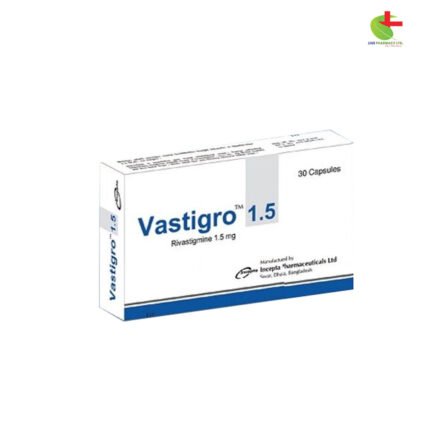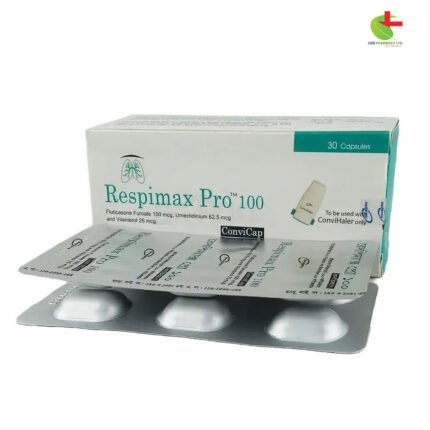Neotison 200
60.00৳ Strip(6)
- Neotison is a synthetic corticosteroid for nasal spray and inhalation powder formulations.
- Nasal Spray: Treats symptoms of allergic rhinitis in patients aged 2 years and older.
- Inhalation Powder: Provides once-daily maintenance for asthma in patients aged 5 years and older.
- It works by reducing inflammation through its anti-inflammatory activity, offering relief from allergic reactions and asthma symptoms.
 Brand
Brand
|
Incepta Pharmaceuticals Ltd |
|---|---|
 Generics
Generics
|
Fluticasone Furoate |
 Type
Type
|
Dry Powder Inhalation Capsule (DPI) |
Indications
Neotison Nasal Spray is designed to treat the symptoms of both seasonal and perennial allergic rhinitis in individuals aged 2 years and older.
Neotison Inhalation Powder is recommended for once-daily maintenance treatment of asthma as a prophylactic therapy in patients aged 5 years and older. It is not intended for the relief of acute bronchospasm.
Important: Always use Neotison as prescribed by a registered healthcare professional.
Description
Neotison is a synthetic corticosteroid with potent anti-inflammatory effects, formulated with fluorinated components. It is available as an aqueous suspension for nasal use, delivered via a metering spray pump. The nasal spray should be primed before the first use and after a period of non-use (over a week). Each bottle contains 120 metered sprays, and the bottle should be discarded after 120 sprays as the dosage may no longer be consistent.
Pharmacology
Fluticasone Furoate, the active ingredient in Neotison, is a trifluorinated synthetic corticosteroid with strong anti-inflammatory properties. Like other corticosteroids, it acts on various immune cells (e.g., mast cells, eosinophils, neutrophils, macrophages, and lymphocytes) and inflammatory mediators such as histamine, leukotrienes, eicosanoids, and cytokines.
Dosage Instructions
Neotison Nasal Spray:
- Adults & Children over 12 years: 2 sprays per nostril once daily. For some patients, 2 sprays per nostril twice daily may be needed, not exceeding 4 sprays per day.
- Children aged 2–11 years: 1 spray per nostril once daily. Consistent use is essential for effectiveness.
- Children under 2 years: Safety and efficacy not established.
Neotison Inhalation Capsule:
- Adults & Adolescents (12+ years): 1 inhalation per day. The starting dose depends on asthma severity, with 100 mcg recommended for those not on inhaled corticosteroids. If 100 mcg is ineffective after 2 weeks, the dose may be increased to 200 mcg.
- Pediatric patients (5–11 years): 50 mcg once daily.
Always follow a healthcare provider’s guidance.
Administration Instructions
How to Use the Nasal Spray:
- Shake the bottle gently and remove the dust cover.
- Hold the spray with your forefinger and middle finger on each side and your thumb underneath.
- Prime the spray (if new or unused for a week) by pressing the nozzle several times until a fine mist appears.
- Gently blow your nose to clear the nostrils.
- Insert the nozzle into one nostril, tilt your head forward slightly, and press the nozzle while inhaling through your nose.
- Exhale through your mouth.
- Repeat in the other nostril.
Cleaning the Nasal Spray:
- Remove the dust cover and gently pull off the nozzle.
- Wash both parts in warm water, shake off excess water, and allow to air dry. Avoid applying direct heat.
- Reassemble after drying.
Drug Interactions
Caution should be exercised when combining Neotison with potent CYP3A4 inhibitors, such as ketoconazole and ritonavir, as this may increase drug exposure.
Special Instructions
Prime the nasal spray device before first use and after extended periods of non-use (30 days or more). Shake the device before each use and follow the priming procedure by pressing the nozzle 6 times until a fine mist appears.
Contraindications
Neotison is contraindicated for patients with a known hypersensitivity to any of its components.
Side Effects
- Nasal Spray: Minimal systemic absorption leads to fewer side effects, but dryness and nosebleeds may occur.
- Inhalation Capsules: Common side effects include nasopharyngitis, bronchitis, upper respiratory infections, and headaches in adults and adolescents. Pediatric patients may experience pharyngitis, bronchitis, and viral infections.
Pregnancy & Lactation
- Pregnancy: Category C. Neotison should be used during pregnancy only if the potential benefit outweighs the risk to the fetus.
- Lactation: It is not known if Neotison is excreted in breast milk. Caution is advised when using during breastfeeding.
Precautions & Warnings
Neotison nasal spray may rarely cause immediate hypersensitivity reactions, contact dermatitis, or other adverse effects like nasal septum perforation, cataracts, and glaucoma with prolonged use. Larger-than-recommended doses should be avoided to minimize potential systemic effects.
Use in Special Populations
- Elderly: Dose selection should be cautious, considering possible age-related changes in hepatic, renal, or cardiac function.
- Hepatic Impairment: Use with caution in patients with severe liver dysfunction.
- Renal Impairment: No dosage adjustments are required for patients with renal impairment.
Therapeutic Class
Nasal Steroid Preparations
Storage Instructions
Store at room temperature (below 30°C), away from light and moisture. Do not refrigerate. Keep out of reach of children.













Reviews
There are no reviews yet.